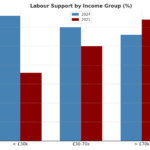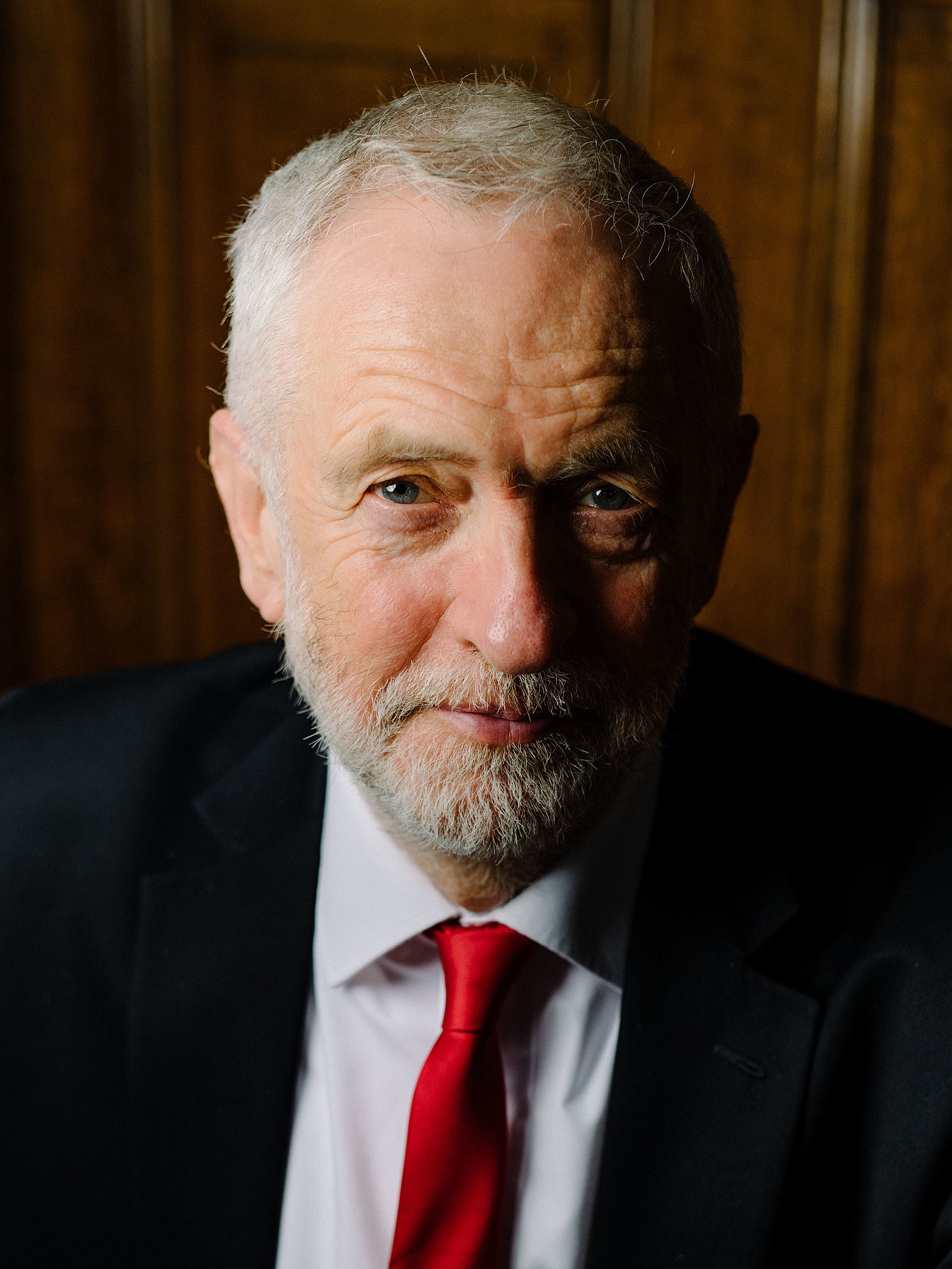New Nationalism: From Dresden to Doncaster to Dallas
Tommy Robinson has crowds; Alice Weidel and Nigel Farage have leverage. The difference is not ideology but engineering. They translate grievance into institutional power. They convert sentiment into seats, committee time, and agenda control. Robinson keeps winning the optics and losing the statecraft. That is the lesson, and the warning.
Across Europe a new wave of populism is redrawing the political map. In Germany the Alternative for Germany under Alice Weidel polls at more than a quarter of the national vote and dominates the eastern states. In Britain Nigel Farage’s Reform Party competes for first place in recent surveys. The common premise is simple. Voters believe that political sovereignty has been drained from the citizen and pooled in bureaucracies in Brussels in Westminster or in global bodies that no one remembers electing.
In this telling the European Commission has taken on executive power without a popular mandate. Ursula von der Leyen’s ascent through a Council nomination and a narrow parliamentary vote became a symbol for Weidel of rule without electorate. The AfD argues that policies born in committee rooms have carried real costs at home. Energy prices. Sanctions that hit exporters. Pressure on the Mittelstand and the skilled self employed. The complaint is not theoretical. It is a monthly bill. It is a payroll decision. It is a factory that moves or shuts.
Britain’s version follows the same track but faces inward. Reform directs anger at the Westminster consensus on migration and regulation. The promise of very low net migration and a lighter regulatory state is the domestic equivalent of Weidel’s call for repatriated powers. Each project speaks to voters who feel that politics has been outsourced. Each offers the same translation. Bring authority back inside the border. Put elected hands on the levers again.
“Reform LEADS for the first time in a national opinion poll. This is just the beginning.”
The economic backdrop matters. Germany’s industrial contraction and the long stall in parts of the East have eaten away at confidence in the post Cold War model. In the United Kingdom wages have flattened while public services strain and housing costs rise. These are the conditions that revive an older Eurosceptic tradition once gathered under the Europe of Freedom and Democracy banner. National sovereignty. Direct democracy. Legislative consent before transfer of powers.
Weidel presents a cool accountant’s case. Not anti Europe. Anti federal Europe. Single Market yes. Centralised mission creep no. Farage makes a similar move in British terms. Brexit as a settled fact. Isolationism rejected. Domestic growth first. Both push energy and industry to the front of the argument. Treat energy cost as strategic. Treat small business as the engine that needs fuel not rules.
“Discussion with @Alice_Weidel.”
The communication architecture is now global. X has fused these conversations across borders. What begins as a German argument about electricity ends up as an American argument about the southern border. What begins as an English row about small boats becomes a French or Italian row about labour markets and identity. The vocabulary is shared. So is the suspicion of technocracy.
There are limits and they are visible. AfD’s expulsion from its European parliamentary group in 2024 showed how isolation shadows rapid ascent. Reform’s public distance from Tommy Robinson shows how fragile respectability can be. Parties that want to grow build firebreaks. They seek broad allies and refuse combustible ones. That is not softness. It is arithmetic.
“We are the people they choose to ignore. And on September 13th, we will remind them, that Britain still stands. That freedom still matters.”
Robinson can fill streets. The September rally in London drew a very large crowd by any measure. The Times called it tens of thousands. Others put the figure higher. Crowds prove sentiment. Parties convert sentiment into outcomes. Rallies do not table amendments. They do not select witnesses for committee hearings. Without a vehicle rallies dissipate.
“Tens of thousands of supporters of Tommy Robinson have gathered in central London to attend a free speech march.”
Now widen the frame. The same mood runs through the American South and the Midwest. It runs through Saxony and Brandenburg. It runs through small town England where the factory closed and the high street thinned out. Conversations in diners outside Dallas sound familiar in pubs near Doncaster and on the platforms of Dresden. Less money in the month. Less trust in the centre. More desire for order at the border and relief on the bill.
Four planks connect these scenes. First borders. Control of entry and control of status as a test of whether politics still belongs to voters. Second sovereignty. Decisions should rest with parliaments that can be turned out of office by the same people who pay the price. Third energy. Price as strategy. Fourth appetite. Polling on both sides of the Atlantic shows that immigration and the cost of living now rank at the top of voter concern. The platforms differ. The instinct is the same.
What can Robinson learn from Weidel and Farage. Build a party not a persona. Publish a short costed programme that reaches beyond crime and immigration to energy and small business. Recruit validators with authority in uniform and in the balance sheet. Learn the post room and the postal vote. Use every rally as a list builder and a canvass engine. Rules are not the enemy. Rules are the tools.
“Reform UK leading in the polls has become global news.”
Defenders of the current order offer a serious counter. The European Parliament is directly elected. The Commission President is chosen through a legal process that balances large and small states. Complex problems like climate or migration need coordination that outlives any one government. Break the instruments and you break the music. That case deserves to be heard. It does not dissolve the grievance. It explains why the argument will be long.
The bottom line is not poetic. Movements make noise. Machines make law. Weidel and Farage have built machines that translate anger into arithmetic. Robinson for all his reach still performs opposition rather than operating it. If he wants power he must professionalise and institutionalise. Everything else is theatre.
| Tommy Robinson |
|
The Streets Fill: Tommy Robinson’s Long Planned Rally Collides With Britain’s Fault Lines A report from the London march that frames the rally as a stress test for Britain’s fractured politics. |
|
Tommy Robinson March Live Rolling coverage and embedded X posts from Robinson’s rally, capturing the mood on the ground and online. |
|
Unite the Kingdom: Tommy Robinson Has Turned Kirk’s Death Into a Rallying Cry in London Streets Examines how the killing of Charlie Kirk became a rallying point for Robinson’s movement. |
| Farage and Reform UK |
|
British Working Class Discontent: Farage, Reform UK, and the Rise of Populist Anger Tracks Reform UK’s expansion from protest to parliamentary force and the coalition Farage is building. |
|
Britain’s Fractured Left: How Corbyn and Sultana’s New Party Threatens Labour’s Hold Analyses how a split on the left could strengthen Farage and redraw Britain’s electoral map. |
|
Britain’s Polarisation: Why Farage Is Winning Uses data on inequality and poverty to explain the political divide that fuels Reform UK’s advance. |
|
Trump Set to Arrive in Britain, With Pageantry Planned but Modest Gains Expected Connects Trump’s visit to Britain’s populist right and Farage’s media strategy. |
| The American Right |
|
Inside the America First Generation Profiles Tucker Carlson, Candace Owens, and young conservatives shaping a new populist current. |
|
The Assassination of Charlie Kirk and the Dangers of America’s Fractured Nationalism Explores the killing of Charlie Kirk and how it deepened divisions within the American right. |
|
The Alleged Shooter Who Shattered His Own Side Focuses on the suspect and the political aftermath of the Charlie Kirk case. |
|
The Chilling Effect: How Criticism of Charlie Kirk Is Being Policed in the United States Examines free speech tensions and the new limits of acceptable commentary after the Kirk shooting. |
|
Charlie Kirk’s Christianity and the Politics of Punishment Reflects on the gap between faith messaging and policy choices inside the movement. |
| Germany & Deindustrialisation |
|
Germany De-Industrialised, Britain Broken: The Real Cost of the Ukraine Gamble Argues that Germany’s industrial base has been hollowed by energy policy, sanctions exposure, and misaligned governance. |
| Divided Britain & Decline |
|
Why Britain Feels So Bitterly Divided and Why the Explanations Are Wrong Challenges standard accounts of social division and links them to structural decline. |
|
Britain’s Theatre of Power & the Reality of Decline (Chandeliers in Windsor, Drizzle in London) Contrasts pageantry in Windsor with the everyday hardship facing ordinary Britons. |
| Flags & Identity |
|
From Roundabouts to Lampposts: St George’s Flag Becomes Symbol of Britain’s Coming Civil War Reports the proliferation of flags across England as signs of identity politics and national tension. |
|
Flags, Protests and a Fractured Identity: Inside England’s Weekend of Patriotism and Anxiety Chronicles a weekend of rallies and flag displays, using symbolism as a proxy for deeper national fissures. |



